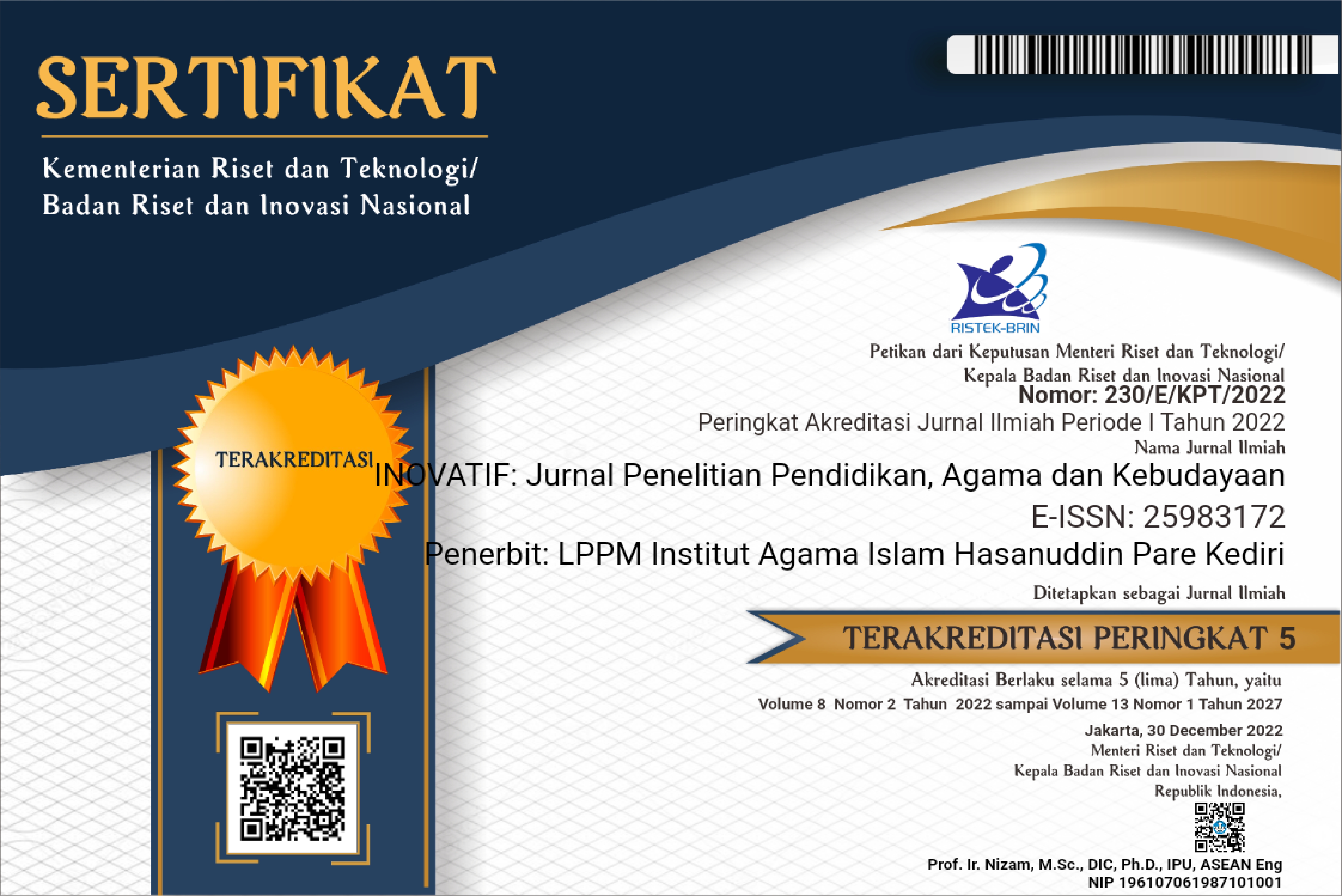Verbalisme Bahasa Arab dalam Kehidupan Masyarakat Muslim
Abstract
Religious life and language have a very close relationship that affects the lives of the people. The role of language in religious studies is very important for its adherents, so that when they read religious texts or listen to their appeals they can make them understand the content and purpose of the text. For the Muslim community the Arabic language becomes a major that they must master and understand because the original sources of Islamic teachings and sciences are Arabic, so it is very important for Muslims especially their scientists to learn, understand, and master the Arabic language. Otherwise, it is difficult for us to study Islam from its original source derived from Arabic. However, this is the most special problem in Islamic societies. As a result of unwell understanding Arabic, unfortunatelly religion becomes easy to sell, religion is easily diverted, religion brought by unscrupulous person in deviation path, religion used as media for certain purposes. Arabic verbalism has happened in Muslim society in Indonesia, they make Arabic as formality, only just a form. So there is no inner or deep value inside of it. It is necessary to reform efforts in its wrong ideology, including changing the culture of verbalism in society, to put the position of Arabic language not only to memorize but used as a tool in deepening knowledge, one of the science of religion.
Downloads
References
Arsyad, Azhar. Pembelajaran Bahasa Arab di Madrasah. Yogyakarta: Deepublish Publisher, 2016.
Chaedar A, Alwasilah. Beberapa Madhab dan Dikotomi Teori Linguistik. Bandung: Angkasa, 1993.
Effendi, Ahmad Fuad. Peta Pelajaran Bahasa Arab di Indonesia, dalam Jurnal Bahasa dan Seni, Oktober 2001.
Keraf, Gorys. Komposisi Sebuah Pengantar Kemahiran Bahasa. Flores: Nusa Indah, 2004.
Khaeruman, Badri. Memahami Pesan Al-Qur’an. Bandung: Pustaka Setia, 2004.
Mangunhardjana, A. Isme-isme dalam Etika dari A sampai Z. Yogyakarta: Kanisius, 1997.
Mujadi, Abdul Al-karim. Al-Dilalah Al-Lughawiyah ‘Inda Al-Arab. Oman: Dar Al-Dhiya’.
Mujib, Fathul. Rekonstruksi Pendidikan Bahasa AraB. Yogyakarta: PT. Bintang Pustaka Abadi, 2010.
Padmo, Dewi dkk. Teknologi Pembelajaran: Upaya Peningkatan Kualitas Dan Produktivitas SDM. Jakarta: Universitas Terbuka, 2003.
S, Zulkarnain. Perkembangan Kurikulum Bahasa Arab. Bengkulu: STAIN Bengkulu, 2007.
Syihabuddin, Penerjemah Arab-Indonesia ‘Teori-Praktik’. Bandung: Humaniora, 2005.
Please read Copyright Notice for Inovatif: Journal of Research on Religious Education and Culture





